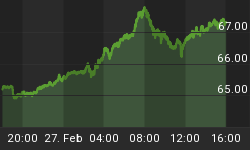The one place that shows you how much gold is really worth
By the editors of BIG GOLD
Anyone who has watched the price of gold lately must have felt that something was off. While public demand for bullion coins went through the roof and major bullion dealers ran out of coins to sell, the spot gold price was flat, teetering between the upper 700- and lower 800-dollar range.
Managing Editor Jeff Clark of BIG GOLD wrote in the November 2008 newsletter:
Many dealers are out of 1-oz. coins, and not just here in the U.S. Londoners have been queuing up in front of coin shops; German suppliers are refusing new orders; demand exceeds mint capabilities in Canada, Australia, and South Africa; and Switzerland is working around the clock. If you're fortunate enough to locate a source of coins, expect to pay an unusually high premium over the price of spot gold -- in the U.S. perhaps 10%, 15%, or more -- triple the normal level. Even then you may have to wait eight weeks or longer for delivery.
According to the laws of supply and demand, shouldn't the spot price have skyrocketed?
Whatever the reason that it didn't - hypotheses bounced around on the Internet ranged from deleveraging to governmental price manipulation - the BIG GOLD editors managed to find an unexpected indicator of the true value of gold that seems to be more reliable than the spot gold market itself...
The eBay Index.
Just like The Economist with its Big Mac Index or its modern cousin, CommSec's iPod Index, both of which explain and compare the purchasing power of currencies, online auction house eBay makes an excellent yardstick for the true value of, well, just about everything.
In recent years, politics and economics seem to have entered an unholy alliance, thus increasingly obstructing the view on causes and effects in the markets. eBay, on the other hand, is the free market at its best and simplest. In other words, a seller's item is worth exactly what a prospective buyer is willing to pay for it.
In April of this year, when the U.S. Mint rationed one-ounce, 2008 Silver Eagles to its thirteen authorized buyers, those same Silver Eagles sold on eBay for $25 apiece... nearly 50% over the then-spot price of $16.80.
Along the same lines, a few weeks ago, when gold was at $750/oz, one-ounce Gold Eagles got bids of $1,000 on eBay... a premium of 33% over spot price.
At the time of this writing, the availability of bullion coins has slightly improved, and major bullion dealers like Kitco.com have resumed offering some of their standard bullion products. Even though inventories are still selling like hotcakes, at least there is an inventory - and the eBay Index has reacted accordingly. Right now, with spot gold at $852, 2008 Gold Eagles are fetching bids of $876 on average... a premium of only 2.8% over spot.
This is a Christmas gift. It means any investor concerned about the government's out-of-control printing of dollars has a window of opportunity to buy gold bullion at reduced markup. You can, at the moment, buy gold while both it and the underlying premiums are cheap. The eBay Index demonstrates that premiums can spike any time and without notice.
And since the editors of BIG GOLD recommend keeping 33% of your portfolio in gold bullion, it is well worth watching the eBay Index to gauge how high gold prices should be at any given time. For it is almost certain that the spot market will follow the Index sooner rather than later. Buy gold now before eBay signals premiums are expensive again.
***
Deflation today + government responses = inflation tomorrow. This means you would be well advised to own some physical gold, as well as crisis-proof stocks of major gold producers and quality ETFs. BIG GOLD is the monthly advisory for the prudent investor, focusing on precious metals investments that are safe havens in times of crisis. Learn more about it here.















